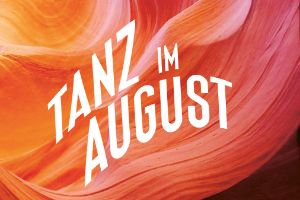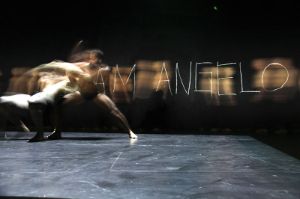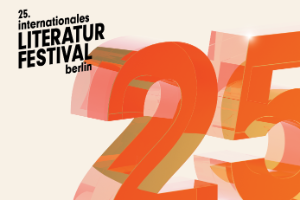
Dance
Le Savali: Berlin
By Lemi Ponifasio
World premiere

Le Savali: Berlin © MAU
»Le Savali« is a Samoan word for a journey of many to express a message, a collective of many voices to show their common concern, a show of community strength and belonging. Le Savali: Berlin is the construction of a ground or a platform for the activation of theatre/ritual/ceremony in a calling on the community to confront current realities experienced through the City of Berlin.
»Le Savali concerns the city as site of the between of life and death, or the city as site of transformation, mutability, unstable thresholds of identity, populations or governance.
Le Savali opens the past and future of the city, the city as partition between spaces for living and memorials or tombs of the dead. It is an occasion for drawing out and drawing over contemporary political, social and cultural conditions of empire and the city.«
Lemi Ponifasio
Lemi Ponifasio, international leading force in theatre and dance, originates from Samoa. His company MAU is a community of artists coming from different islands of the Pacific region and New Zealand. The site for this new theatre-work by Lemi Ponifasio is the socially varied and multicultural city and capital of Berlin. MAU will come together with immigrants and natives; a variety of performers, dancers, a Bulgarian choir, musicians and artists all living in and negotiating the world from and within this city.
Le Savali: Berlin is a public declaration that the integrity and dignity of our common humanity should not be deformed by fears or anonymous systems, or intolerance, such as we witness all around us. A unique encounter of artists and communities shaping the face of Berlin – and is theatre, that opens the world, that welcomes everybody.
»Whats new in the choreographic landscape? Lemi Ponifasio. We have been watching out for the new miracle: the one capable of bringing onto stage bodily images captivating both fans of dance and visual art. Lemi Ponifasio, highly regarded by Peter Sellars, could be indeed the one.«
Le Figaro
Besucherstimmen
I loved Ponifasio’s piece. I found it sublime, of an overwhelming poetry and profoundly touching. It was an incredible experience.
Juan Kruz Diaz de Garaio Esnaola, Sasha Waltz Company
Das Rilke Gedicht vom Panther, eingangs eher beiläufig zitiert, setzt das Thema und die Atmosphäre des Stückes: »tausend Stäbe und hinter tausend Stäben keine Welt«. Irritierend lange ist man dem geschlossenen Eisernen Vorhang ausgesetzt und fühlt sich mehr und mehr zum Gefangenen werden. Leicht und angenehm hat es einem Lemi Ponifasio wahrlich nicht gemacht: zermürbend und unausweichlich langsam bewegen sich archetypische Gestalten durch ein exquisit beleuchtetes, doch stets im Dämmer verharrendes Bühnenbild und man fühlt sich mehr und mehr zu einem Teil dieses Schau- und Hörstückes über die Gewalt des Menschen über den Menschen und auch gegen sich selbst werden, ja, entdeckt diese Bilder als dunkle, tiefe Kräfte in sich selbst. Ob man das haben möchte? Manch einer ging lieber. Die Bilder sind stark und komplex, sie wirken sofort und wirken nach.
Lemi Ponifasio bietet keine Hoffnung, keinen Ausweg. Es bleibt fast das ganze Stück im schwarz/weißen Zwielicht, nur kurz tauchen einmal Rot und Blau auf. Doch zum Schluss erscheint die Gemeinschaft aller Mitwirkenden als Teil des Stückes. Sie haben uns diese Saga von Gewalt, Unterdrückung, Unterwerfung, Hingabe und Teilhabe als ein Ritual dargebracht: Fand es in der Morgendämmerung statt und wir gehen in unseren Tag und verbleiben in diesem Spiel, oder war es die Abenddämmerung und wir haben es noch einmal in oft quälender Langsamkeit und Deutlichkeit gesehen, um es am Tag darauf hinter uns zu lassen? Den »betäubten großen Willen« zu finden, wie es im Rilke Gedicht heißt?
Ein sehr intensives, in seiner Ästhetik sehr berührendes, ja, auch begeisterndes Stück und eine sehr mutige Auftaktveranstaltung für die diesjährige Spielzeit! Veränderbare Welten? Nicht ohne Konfrontation mit dem, was Angst macht.
Ulla Ashika Haug
Cast
Concept, stage, choreography, direction, sound design and musical direction Lemi Ponifasio
Lighting Design Helen Todd
Composition Fabrizio Cassol
With MAU – Samoa, Neuseeland, Kiribati
in collaboration with performers, dancers, musicians, and a choir from Berlin
BERLIN
Performers Liza Alpizar Aguillar, Vincent Bozek, Gabriel Castillo, Esteban Castro, Ana Kavalis, Soraya Miroud, Yalda Moinzadeh, Ming Poon, Julia Asuka Riedel, Angelo Rygielski, Maya Zapata
Bulgarian Voices Berlin: Boryana Cerreti-Velichkova – coach
Kerstin Dambeck, Annette Isenbart, Andrea Pohler, Ulrike Reichhoff, Petra Stawowczyk, Ani Stoyanova, Katya Tasheva, Margarita Todorova-Jabarski, Tsvetelina Yonova-Karbe, Weronika Zmiejewski
Musiker Xell – oboe/gaida, Simon Jakob Drees – violin
Vladimir Karparov – saxophone, Silke Lange – accordion
Yann Metzmacher – violin, Horst Nonnenmacher – double bass
Levent Yildirim – percussion
MAU
Ioane Papalii, Teataki Tamango, Rosie Belvie, Charles Koroneho, Arikitau Tentau, Kelemete Fu’a, Maereke Teteka, Gerard Tatireta, Tupua Tigafua, Kasina Campbell, Tiui Elisara, Helmi Prasetyo (Teater Ruang), Courtney Meredith, Sam Hamilton, Sani Muliaumaseali’i
Commissioned by spielzeit’europa | Berliner Festspiele
With the support of ENPARTS – European Network of Performing Arts, Biennale di Venezia as part of the Culture Programme of the European Commission
